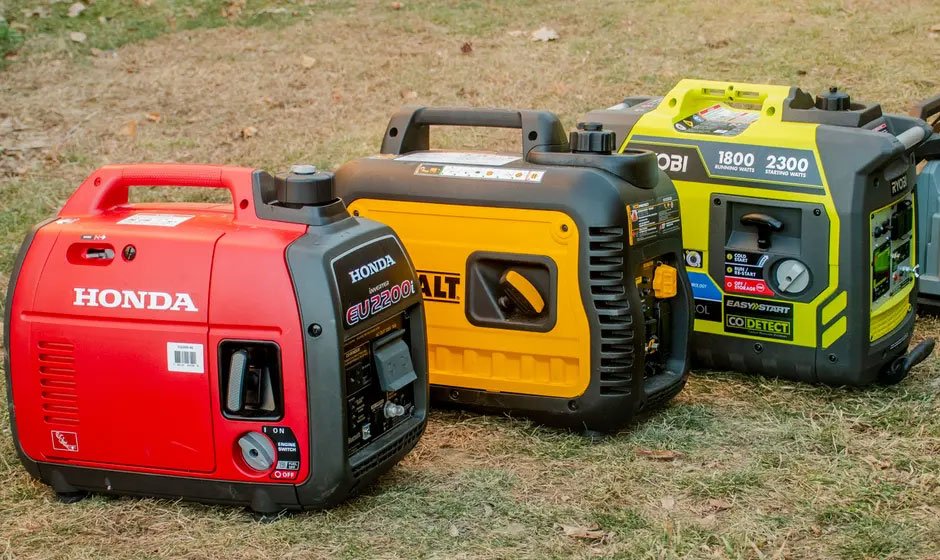Selecting the right generator for home use is a decision that should be made carefully, as it directly impacts your family’s comfort and safety during power outages. With various types and sizes of generators available, finding the best fit for your needs can be challenging. We will explore the different types of generators suitable for home use, considering aspects such as power requirements, fuel sources, and budget constraints.
Types of generators
1. Portable Generators
Portable generators are popular for homeowners seeking a cost-effective and versatile backup power source. These compact generators can be easily moved around, making them ideal for occasional use during short-term power outages. They are available in various sizes, from small, lightweight models suitable for charging electronic devices to larger units capable of powering essential appliances and lighting. Portable generators are generally powered by gasoline, propane, or diesel fuel, offering flexibility in fuel availability. However, they have limited power output compared to standby generators, so it’s crucial to prioritize which appliances and devices you want to power during an outage.
2. Standby Generators
Standby generators are a more permanent and robust solution for homeowners who require uninterrupted power during extended outages. These units are permanently installed on a concrete pad or foundation and are connected directly to your home’s electrical system. Standby generators automatically detect power outages and start up within seconds, providing seamless backup power to your house. Typically, standby generators run on natural gas or propane, eliminating the need for refueling and ensuring a constant fuel supply if connected to a utility gas line. They come in various sizes and can support the entire home or just essential circuits, depending on your preferences and budget.
3. Inverter Generators
Inverter generators are a relatively new and highly efficient option for home use. They use advanced technology to produce stable and clean electricity, making them suitable for powering sensitive electronics like laptops and smartphones. Inverter generators are also comprehended for their quiet operation, fuel efficiency, and compact design, making them an excellent choice for homeowners who prioritize convenience and noise reduction. These generators are generally available in portable sizes, making them easy to transport and store. While they may not have the same power output as larger standby generators, inverter generators are an excellent choice for recreational use, camping trips, or backup power for essential devices during short-term power outages.
4. Solar Generators
Solar generators harness the power of the sun to generate electricity, offering homeowners an eco-friendly and sustainable solution. These systems include solar panels, a battery storage unit, and an inverter. Solar generators can furnish a continuous source of electricity when connected to your home’s electrical system or serve as portable units for outdoor activities. One significant advantage of solar generators is their ability to operate silently and produce clean energy without relying on fossil fuels. However, they may require a significant upfront investment in solar panels and battery storage. Solar generators are best suited for areas with ample sunlight and homeowners committed to reducing their carbon footprint.
5. Hybrid Generators
Hybrid generators combine the benefits of multiple power sources to provide a reliable and versatile solution for home use. These generators typically incorporate a combination of solar panels, batteries, and a backup fuel source such as propane or natural gas. Hybrid generators can automatically switch between power sources based on sunlight availability or the battery’s state of charge. Hybrid generators propose the best of both worlds, allowing homeowners to rely on clean energy from solar panels while having a backup fuel source for extended outages or periods of limited sunlight. They are an excellent choice for environmentally conscious homeowners pursuing a balance between sustainability and reliability.
6. Generator Sizing and Load Management
Regardless of the type of generator you choose, it’s paramount to determine the right size to meet your home’s power requirements. An undersized generator can overload and potentially damage your electrical appliances, while an oversized one may be less fuel-efficient and expensive. To determine the appropriate generator size, list essential appliances and devices you want to power during an outage, including refrigerators, lights, heating or cooling systems, and medical equipment if necessary. Calculate the total wattage required to run these appliances simultaneously, and choose a generator with a rated output slightly higher than your calculated load. Additionally, consider load management systems that can prioritize which circuits or appliances receive power during an outage to maximize generator efficiency.
Selecting the best generator for home use involves considering various factors, including your power requirements, budget, and environmental preferences. Whether you opt for a portable generator, standby generator, inverter generator, solar generator, or hybrid generator, it’s essential to prioritize reliability and safety while meeting your unique needs. A well-chosen generator will provide peace of mind during power outages, ensuring your family remains comfortable and your essential appliances continue functioning. Careful consideration of the options available will help you make an informed decision and ensure that you have a reliable backup power source when needed.

